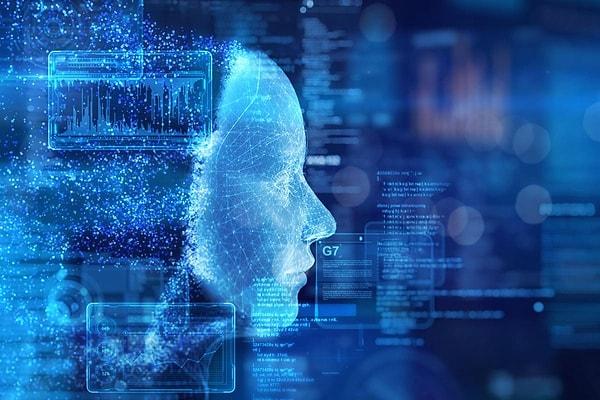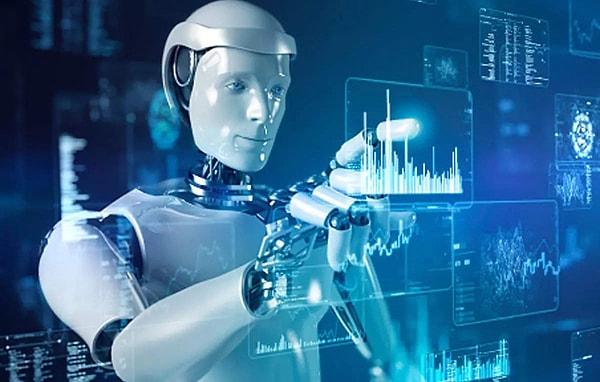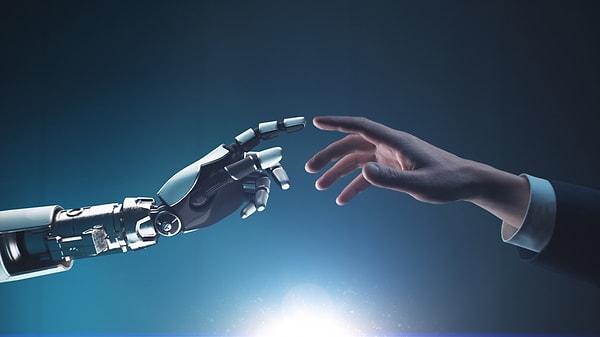What is Artificial Intelligence (AI): A Comprehensive Overview
In today's rapidly advancing technological landscape, the term 'Artificial Intelligence' (AI) has become ubiquitous, sparking both curiosity and fascination. AI is more than just a buzzword; it represents a revolutionary field of computer science that strives to imbue machines with human-like intelligence and capabilities. As we embark on this exploration of AI, we will uncover its essence, delve into its various subfields, and discover its wide-ranging applications across industries.
The Essence of Artificial Intelligence (AI)

Artificial Intelligence, often abbreviated as AI, refers to the development of computer systems and algorithms that can perform tasks typically requiring human intelligence. These tasks encompass a broad spectrum, including problem-solving, learning from experience, understanding natural language, recognizing patterns, and making decisions.
AI systems are designed to mimic and replicate human cognitive functions, such as reasoning, problem-solving, perception, and language understanding. However, AI goes beyond mere automation; it empowers machines to adapt, learn, and improve their performance over time without explicit programming.
AI's Multifaceted Subfields

AI is a vast and multidisciplinary field, comprising several subfields, each with its own unique focus and applications:
Machine Learning (ML): Machine Learning is a subset of AI that revolves around creating algorithms and models that enable machines to learn from data. It encompasses supervised learning (where models learn from labeled data), unsupervised learning (for discovering patterns in unlabeled data), and reinforcement learning (which focuses on decision-making through rewards and penalties).
Deep Learning: Deep Learning is a specialized branch of ML that employs artificial neural networks with multiple layers (deep neural networks). It has revolutionized AI's ability to handle complex tasks, such as image and speech recognition, natural language processing, and autonomous driving.
Natural Language Processing (NLP): NLP focuses on enabling machines to understand, interpret, and generate human language. It plays a pivotal role in virtual assistants like Siri and chatbots, language translation, sentiment analysis, and text generation.
Computer Vision: Computer Vision equips machines with the ability to interpret and understand visual information from the world, making it vital for applications like facial recognition, object detection, and autonomous vehicles.
Reinforcement Learning: Reinforcement Learning involves training AI agents to learn by interacting with an environment and receiving feedback in the form of rewards or penalties. It is integral to the development of autonomous agents and robotics.
AI in Action: Real-World Applications

AI's transformative potential extends across a myriad of industries, redefining how tasks are accomplished and problems are solved:
Healthcare: AI is revolutionizing healthcare through applications like medical image analysis, disease diagnosis, drug discovery, and personalized treatment recommendations. Machine learning algorithms can analyze vast datasets of medical records, images, and genomic information to assist clinicians in making more accurate diagnoses and treatment decisions.
Finance: In the financial sector, AI algorithms are used for risk assessment, fraud detection, algorithmic trading, and customer service chatbots. AI-driven robo-advisors provide automated investment advice, while natural language processing is employed for sentiment analysis in financial markets.
Transportation: The transportation industry is undergoing a seismic shift with AI-powered advancements. Autonomous vehicles, guided by computer vision and machine learning, promise safer and more efficient transportation. AI also plays a crucial role in optimizing traffic management systems and logistics.
Entertainment and Gaming: AI has transformed the entertainment and gaming industries by enabling realistic graphics rendering, character animation, and personalized gaming experiences. Game developers use AI to create intelligent non-player characters (NPCs), while content recommendation algorithms personalize streaming services.
Retail: In retail, AI enhances customer experiences through personalized recommendations, inventory management, and supply chain optimization. AI-powered chatbots provide customer support, and computer vision enables cashier-less checkout experiences.
A New Era

Artificial Intelligence is not a futuristic concept; it is already an integral part of our lives, shaping industries, automating tasks, and improving decision-making processes. As AI continues to evolve and mature, its applications will expand further, ushering in a new era of innovation and convenience. Understanding the essence and diverse subfields of AI allows us to appreciate its potential to transform the way we live and work in the 21st century.
Keşfet ile ziyaret ettiğin tüm kategorileri tek akışta gör!


Send Comment
Great! This article serves as an informative guide for anyone interested in delving deeper into the world of AI. Thanks!